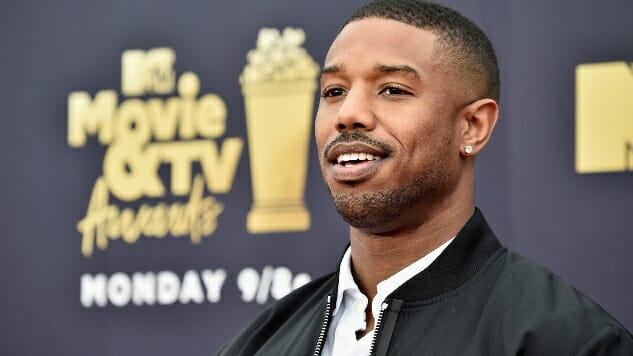WarnerMedia Announces Promising, if Imperfect New Diversity and Inclusion Policy
Photo by Frazer Harrison/Getty
WarnerMedia (the parent company of Warner Bros., HBO and Turner Broadcasting) has announced a new corporate-wide policy aimed at strengthening diversity in all of its future movies and television shows.
Acknowledging their duty to do “much more” to diversify Hollywood, the company implemented the new initiative to increase the inclusion of women, people of color, the LGBTQ+ community, people with disabilities and other members of underrepresented groups—both in front of and behind the camera.
In a statement released on Wednesday, WarnerMedia pledges “to use our best efforts to ensure that diverse actors and crew members are considered for film, television and other projects, and to work with directors and producers who also seek to promote greater diversity and inclusion in our industry.”
So what does Warner, known for several films that have been praised for their considerable representation of neglected groups (Crazy Rich Asians, Wonder Woman), mean by that broad announcement?
Other than just saying things that sound good, here’s what WarnerMedia has officially promised in their rough, written proposal:
First, the media conglomeration has vowed to take time out of early production stages to formulate carefully considered inclusivity action plans for each new venture.
“In the early stages of the production process, we will engage with our writers, producers and directors to create a plan for implementing this commitment to diversity and inclusion on our projects, with the goal of providing opportunities for individuals from under-represented groups at all levels,” WarnerMedia states.
To put that announcement in simpler language, Warner essentially has come up with a plan to come up with future plans, which (at risk of sounding cynical) doesn’t sound like the most effective course of action.
In an effort to be transparent, WarnerMedia has also pledged to issue annual public reports on its progress. This measure will give the public the chance to hold Warner accountable for their proposed commitment.
The policy, although a critical move given the sizable influence of the studio, falls short of requiring Warner employees to meet diversity benchmarks—an approach advocates have encouraged, as the New York Times points out.
Stacy Smith, who researches gender equality in film and TV at the University of Southern California, urges talent to insist on rigorous diversity and inclusion policies. Smith, founder of the Annenberg Inclusion Initiative, was the brain behind the “inclusion rider,” which was brought to media attention when Frances McDormand referred to it in her acceptance speech at this year’s Oscars. Inclusion riders are contractual clauses that require a cast to adhere to certain numerical guidelines that ensure diversity in film and TV.
-

-

-

-

-

-

-

-

-

-

-

-

-

-

-

-

-

-

-

-

-

-

-

-

-

-

-

-

-

-

-

-

-

-

-

-

-

-

-

-








































